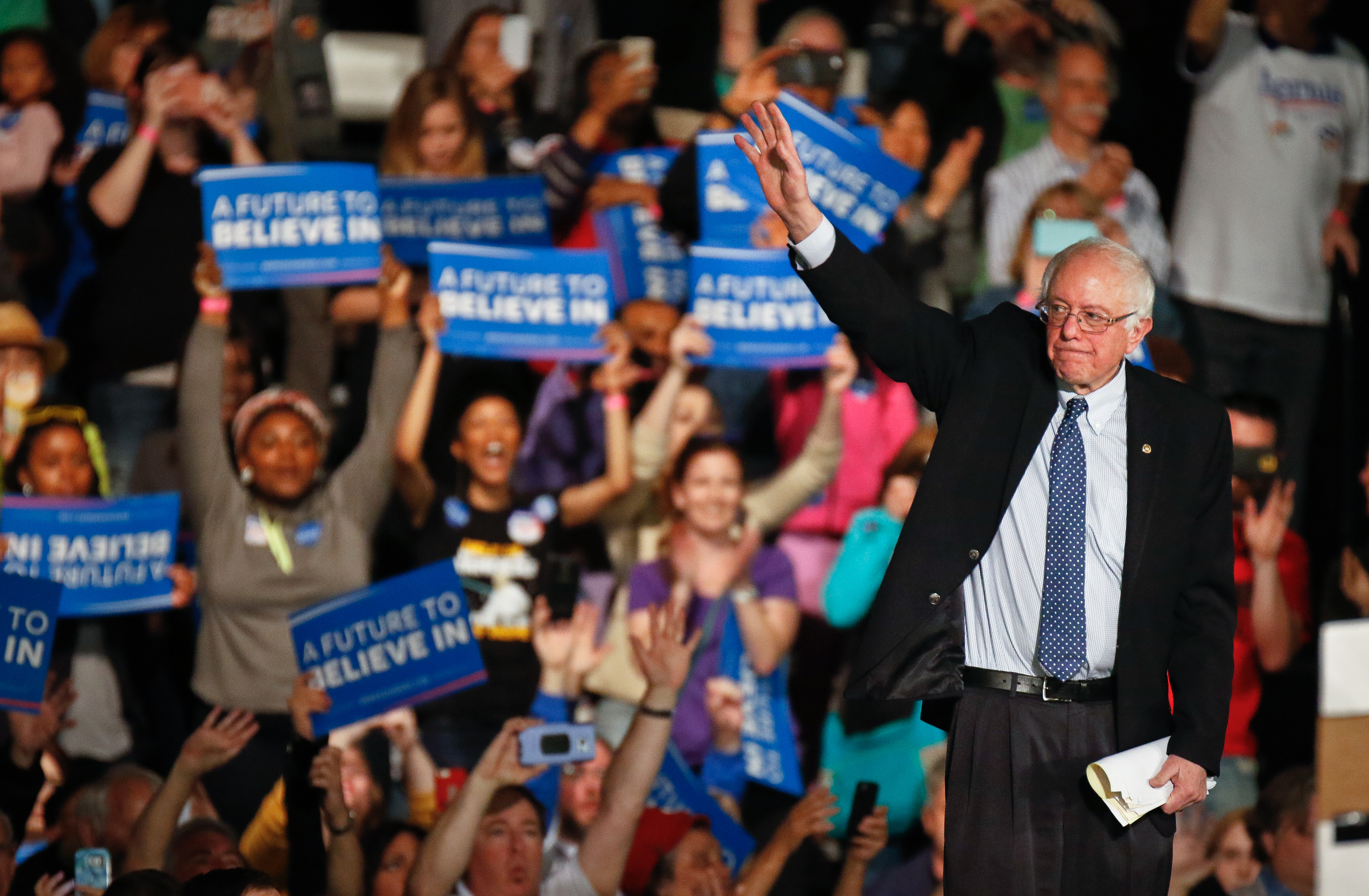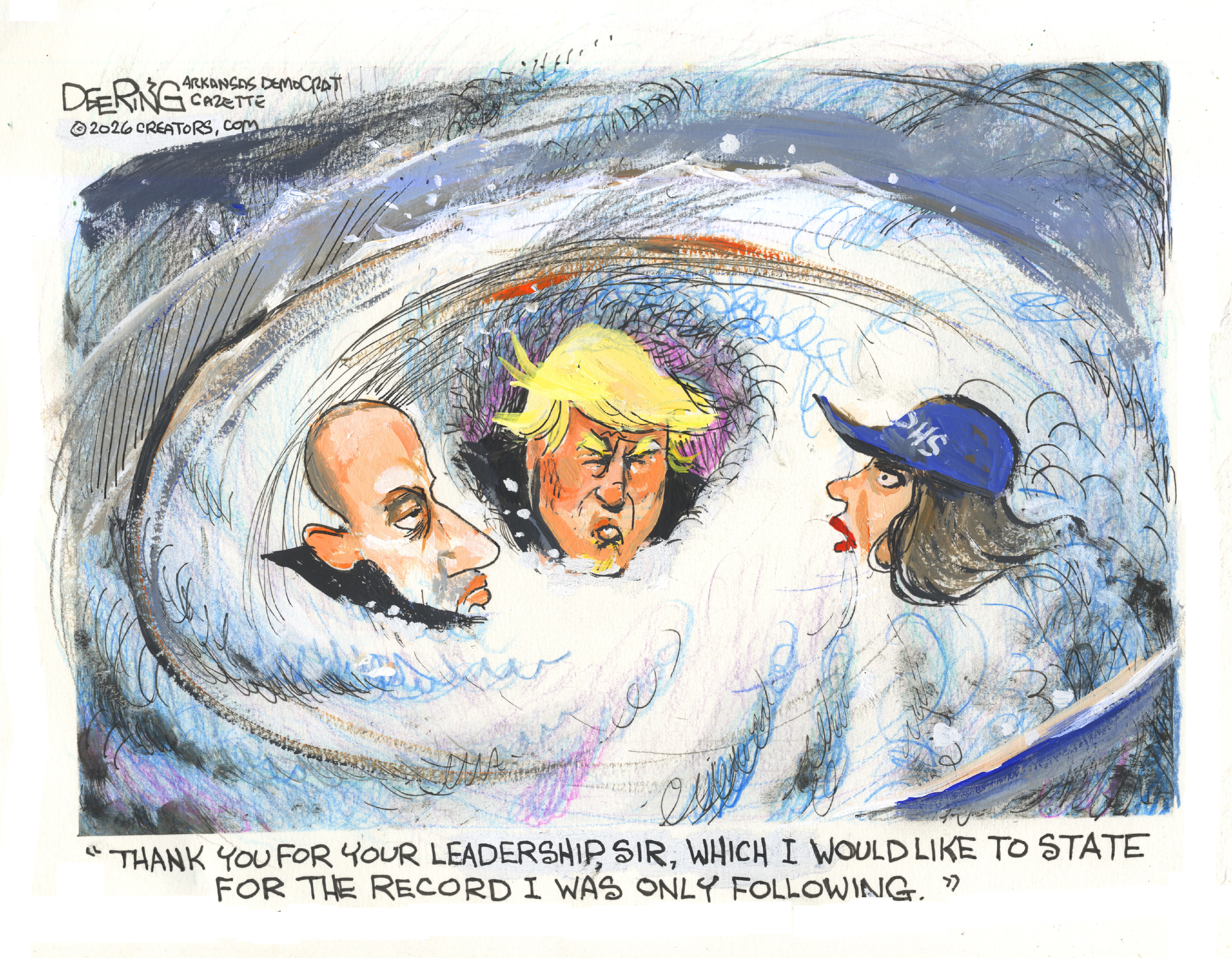Why Bernie Sanders supporters can't accept the grim end of their crusade
To admit that the campaign is over means admitting that the person you wanted to be — hopeful, committed, optimistic — was wrong about what was possible


A free daily email with the biggest news stories of the day – and the best features from TheWeek.com
You are now subscribed
Your newsletter sign-up was successful
It's hard to say goodbye to something you love — and there are a lot of people right now who absolutely love Bernie Sanders' presidential campaign. As well they should. It has been one of the most remarkable happenings in the recent history of American politics, as a rumpled, crotchety 74-year-old socialist put together a serious challenge to the Democratic Party's anointed candidate, raising over $200 million and energizing young people across the country for a revolutionary crusade to remake American politics.
So you can understand why Sanders supporters have trouble accepting that there's just no way for him to be the party's nominee. Part of it comes from the fact that, technically, it's still possible for Sanders to prevail. Yes, it would require him to persuade nearly every remaining Democratic voter to cast a ballot for him, and then get all the superdelegates now supporting Clinton to flip as well. So who knows?
Here's the brutal truth, though: No matter how the big prize of California comes out next Tuesday, Clinton is still going to have a majority of the delegates and is still going to be the Democratic nominee. As Harry Enten has observed, it's a near-certainty that Clinton will officially pass the number of delegates she needs when New Jersey closes its polls at 8 p.m. eastern on Tuesday. Even though the California primary looks to be extremely close — the widely revered Field Poll shows Clinton leading Sanders by a margin of 45 percent to 43 percent, and other recent polls have found similar splits — since Democrats allocate delegates proportionally, the two candidates will gain similar numbers of delegates. It won't matter at that point who nosed out who in that last big contest.
The Week
Escape your echo chamber. Get the facts behind the news, plus analysis from multiple perspectives.

Sign up for The Week's Free Newsletters
From our morning news briefing to a weekly Good News Newsletter, get the best of The Week delivered directly to your inbox.
From our morning news briefing to a weekly Good News Newsletter, get the best of The Week delivered directly to your inbox.
But tell that to a Sanders supporter, and you'll likely get an earful of protestation. That's not because they aren't rational people, it's because they have so much invested in his campaign — often financially or in terms of the time they've spent, but mostly emotionally. Bernie has promised them so much, and the campaign has accomplished so much, that saying, "Oh well, we gave it a good shot but it didn't work out" must seem like a betrayal of everything they've been fighting for.
Hillary Clinton has offered her supporters little in the way of grand dreams and glorious visions of transformation. She's a pragmatic politician presenting a pragmatic program. Sanders, on the other hand, is a candidate of revolution. He asked his supporters to believe in something epic, to change their thinking about what's possible in politics. If you Felt the Bern, you yourself were transformed. To admit that the campaign is over means admitting that the dream is dead, and that person you wanted to be — hopeful, committed, optimistic — was wrong about what was possible.
Add to that the fact that Sanders supporters have convinced each other that the system is rigged, which means that any outcome other than Sanders winning is not just unfortunate but fundamentally illegitimate. If you believe that, it means that once you assent to a Clinton victory you've assented to corruption.
While Sanders himself has gotten some criticism for not bowing out already or acknowledging that it's all over, you can't blame him — and when you watch him being interviewed in recent weeks, you can see his internal struggle. He surely feels that at the very least, he has an obligation to stay in the race long enough for all his supporters to have the chance to cast their ballots for him. And it would be weird to say, "I'm still in the race, even though I know I've lost." So he can be forgiven for putting the best face on things, even if it sometimes means he has to stray into fantasyland. "If we win California, and if we win South Dakota, and North Dakota and Montana and New Mexico and New Jersey, and the following week do well in Washington, D.C.," he told rapturous supporters this week, "I think we will be marching into the Democratic convention with an enormous amount of momentum."
A free daily email with the biggest news stories of the day – and the best features from TheWeek.com
Which is, of course, ridiculous. First of all, he's not going to win all those places. But even if he did, Clinton will still have passed beyond the majority of delegates she needs. After all the voting is done, "momentum" is irrelevant. It's like saying that even though your team lost the game 5-4, the fact that you scored a run in the ninth inning means you ought to be considered the winner.
Even after all the TV anchors and newspaper headlines declare that Clinton is now the nominee of the party, there will be a few Sanders supporters who refuse to accept it (and those few will surely have no problem finding cameras into which they can air their grievances). They'll say Bernie can still make his case to the superdelegates, that they're holding out for the FBI to indict Clinton, that it was never a fair fight to begin with. If you feel the urge to mock, consider sparing a sympathetic thought for them.
They've come a long way, and their idealism is something our system needs. And eventually, even if it takes a while, they'll make their peace with defeat.
Paul Waldman is a senior writer with The American Prospect magazine and a blogger for The Washington Post. His writing has appeared in dozens of newspapers, magazines, and web sites, and he is the author or co-author of four books on media and politics.
-
 Russia’s ‘cyborg’ spy pigeons
Russia’s ‘cyborg’ spy pigeonsUnder the Radar Moscow neurotech company with Kremlin-linked funding claims to implant neural chips in birds’ brains to control their flight, and create ‘bio-drones’
-
 Political cartoons for February 8
Political cartoons for February 8Cartoons Sunday’s political cartoons include going down the drain, American history, and more
-
 Touring the vineyards of southern Bolivia
Touring the vineyards of southern BoliviaThe Week Recommends Strongly reminiscent of Andalusia, these vineyards cut deep into the country’s southwest
-
 The billionaires’ wealth tax: a catastrophe for California?
The billionaires’ wealth tax: a catastrophe for California?Talking Point Peter Thiel and Larry Page preparing to change state residency
-
 Bari Weiss’ ‘60 Minutes’ scandal is about more than one report
Bari Weiss’ ‘60 Minutes’ scandal is about more than one reportIN THE SPOTLIGHT By blocking an approved segment on a controversial prison holding US deportees in El Salvador, the editor-in-chief of CBS News has become the main story
-
 Has Zohran Mamdani shown the Democrats how to win again?
Has Zohran Mamdani shown the Democrats how to win again?Today’s Big Question New York City mayoral election touted as victory for left-wing populists but moderate centrist wins elsewhere present more complex path for Democratic Party
-
 Millions turn out for anti-Trump ‘No Kings’ rallies
Millions turn out for anti-Trump ‘No Kings’ ralliesSpeed Read An estimated 7 million people participated, 2 million more than at the first ‘No Kings’ protest in June
-
 Ghislaine Maxwell: angling for a Trump pardon
Ghislaine Maxwell: angling for a Trump pardonTalking Point Convicted sex trafficker's testimony could shed new light on president's links to Jeffrey Epstein
-
 The last words and final moments of 40 presidents
The last words and final moments of 40 presidentsThe Explainer Some are eloquent quotes worthy of the holders of the highest office in the nation, and others... aren't
-
 The JFK files: the truth at last?
The JFK files: the truth at last?In The Spotlight More than 64,000 previously classified documents relating the 1963 assassination of John F. Kennedy have been released by the Trump administration
-
 'Seriously, not literally': how should the world take Donald Trump?
'Seriously, not literally': how should the world take Donald Trump?Today's big question White House rhetoric and reality look likely to become increasingly blurred
